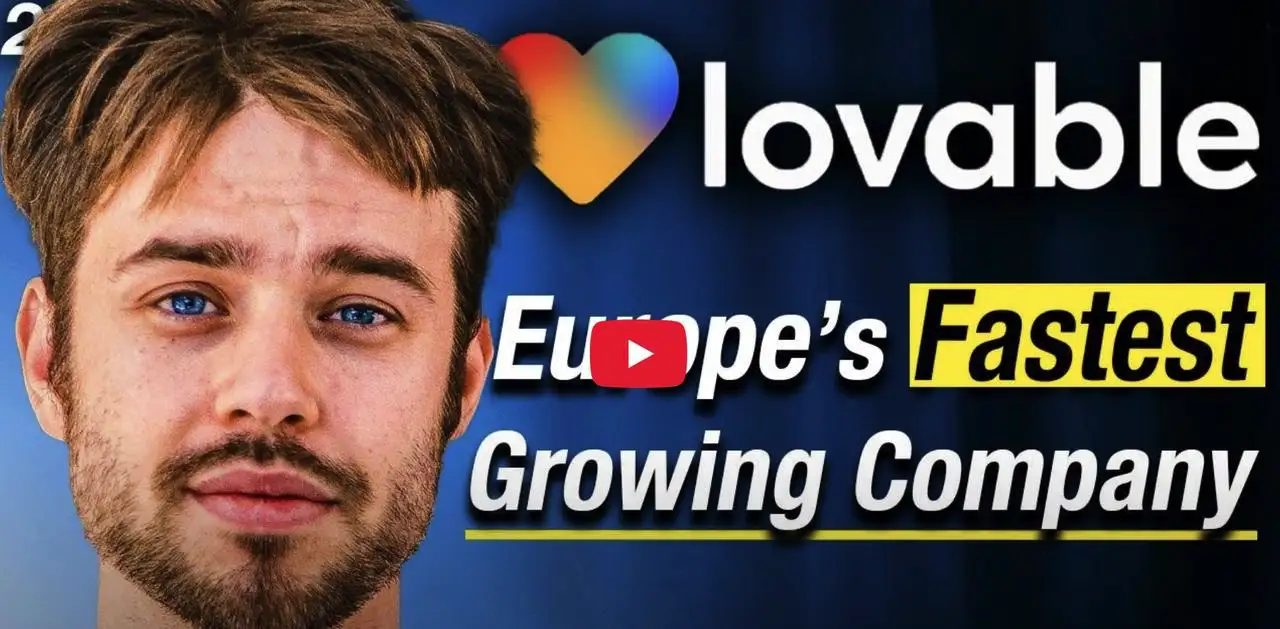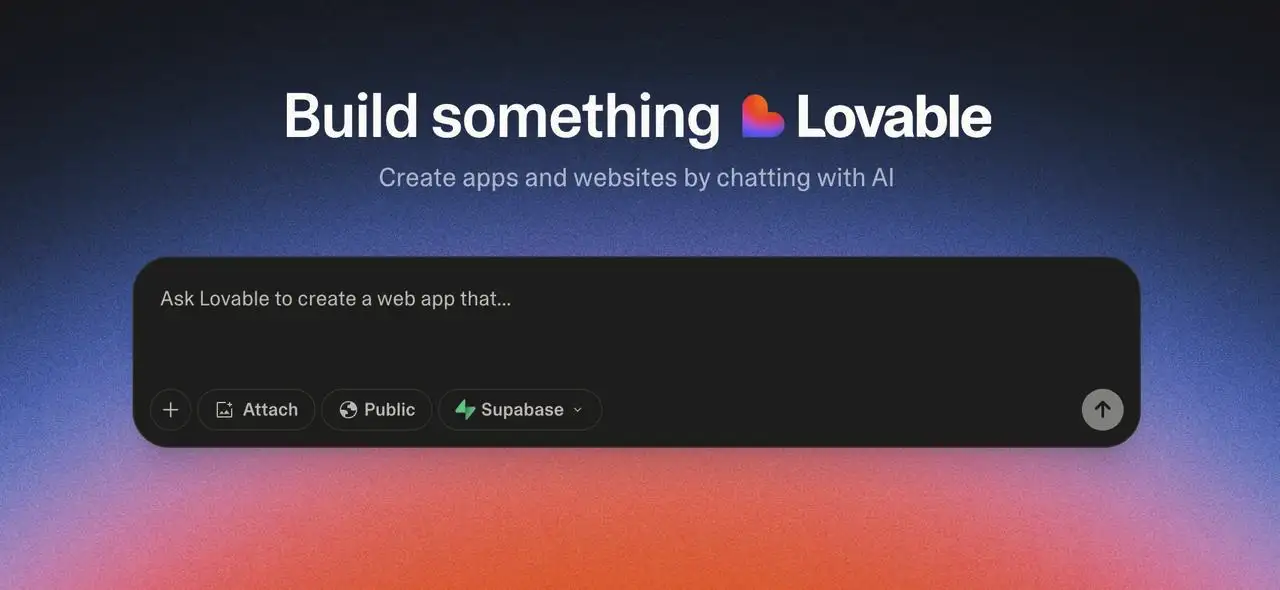Lovable: Europe’s Unicorn Reimagining App Building with AI
.webp)
Eric Walker · 22, July 2025
When Stockholm engineer Anton Osika turned a weekend “vibe-coding” demo into a public beta last November, even he didn’t expect the hockey-stick that followed. By mid-July the fledgling startup—now called Lovable—closed a $200 million Series A led by Accel at a $1.8 billion valuation, one of the largest first rounds in European history. Bloomberg notes that only a handful of Nordic tech companies have ever crossed the billion-dollar mark this quickly, underscoring just how rare Lovable’s trajectory is on the continent.

Why Lovable Feels Like “Cursor for the Rest of Us”
Most AI coding tools, from Cursor to GitHub Copilot, assume you’re at least “code-curious.” Lovable flips the funnel by aiming at people with ideas but zero engineering background—designers, marketers, indie founders, even school teachers looking to prototype an ed-tech side gig. Type a plain-English prompt (“I need a two-page site that sells vintage sneakers and takes Stripe”), wait a minute or two, and a live, deploy-ready app appears—database schema, authentication and basic analytics included. TechCrunch tallies more than 10 million projects spun up on the platform so far, the majority built by non-technical users.
Vibe Coding in Action
Scroll through X and you’ll find a steady stream of “I-built-this-in-an-afternoon” threads: a Brazilian ed-tech firm that grossed $3 million in 48 hours; a solo founder who shipped an AI calorie-tracker without touching React; and hundreds of weekend hackers racing to launch a Lovable-made product on Product Hunt. The pattern is less about novelty websites and more about collapsing the distance between idea and revenue—a dynamic that resonates with U.S. creators accustomed to tools like Webflow, Bubble or Shopify.
A Growth Curve That Has VCs Doing Double-Takes
Lovable reports 2.3 million monthly active users and 180 000 paying subscribers only eight months in. Thanks to a freemium plan that converts at roughly 7–8 %, the company hit $75 million in annual recurring revenue (ARR) while the employee count was still in the mid-forties. More surprising: first-month retention for paying customers sits at 85 %—higher than ChatGPT’s benchmark, according to a recent founder interview. If you follow SaaS metrics, you know those numbers usually show up years, not quarters, after launch.
Behind the scenes, Lovable leans on a proprietary orchestration layer that picks the cheapest capable large-language model for each task—Anthropic for reasoning, open-source mistral for boilerplate, custom fine-tunes for UI copy—keeping gross margins healthy even as users experiment freely.

Who’s Writing the Checks
Accel’s mega-round came with a dream-team of operator-angels: Klarna CEO Sebastian Siemiatkowski, Remote’s Job van der Voort, Slack co-founder Stewart Butterfield, HubSpot co-founder Dharmesh Shah, and dozens more. Earlier backers 20VC, Creandum and Hummingbird doubled down after seeing ARR climb by $2 million every single week this spring.
The investor thesis is clear: if large-language models can already draft code, the bigger prize is unlocking the 99 % of potential builders who don’t read Stack Overflow. Combine that TAM with Lovable’s PLG motion and the capital-efficient DNA of European startups, and you get a funding round that looks more like late-Series B than early-Series A.
Building on “Hard Mode” – the European Angle
Osika jokes that launching a dev-tool startup in Sweden feels like playing on “hard mode.” Venture capital is scarcer, recruiting senior ML talent competes with Spotify and Klarna, and consumer appetite for early-beta software can be conservative compared with Silicon Valley’s move-fast culture. Yet Norway’s Cognite, Germany’s DeepL and the U.K.’s Stability AI have shown that AI breakthroughs can emerge far from Sand Hill Road. Lovable adds to that narrative, proving that a lean Nordic team can scale a global AI platform without decamping to San Francisco.
European regulation may even become a moat: with the EU’s AI Act rolling out, compliance-first engineering could give Lovable an edge when U.S. rivals expand overseas.
Free AI coding tools available on GlobalGPT, an all-in-one AI platform.
What Comes Next
Lovable says the new capital will grow the headcount to 120 by year-end, with a focus on enterprise features—role-based access, SOC 2 auditing, and one-click deploys to AWS GovCloud for public-sector clients. A public plugin market is also on the roadmap, letting third-party developers sell templates and integrations; think Shopify App Store but for no-code AI back-ends.
For American founders watching the no-code wave, Lovable’s ascent is a reminder that the frontier of software creation is moving from syntax to intent. Whether you’re a Gen-Z designer sketching a side hustle or a Fortune 500 product manager running an internal hackathon, the question is no longer “can I code?” but “how fast can I test a business idea?”
If Lovable keeps its current pace, the answer might soon be: about the time it takes to drink your morning coffee.
